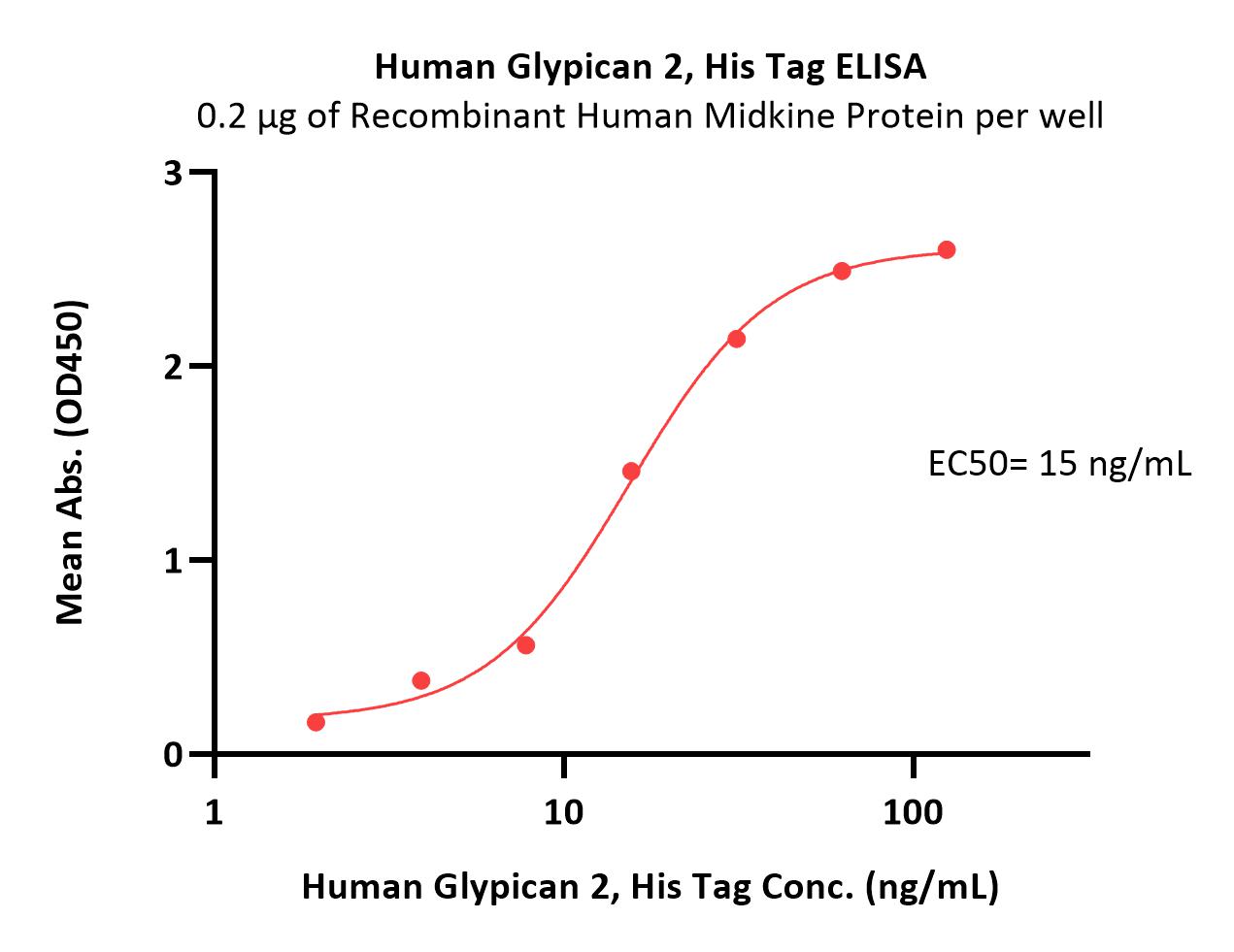分子别名(Synonym)
Glypican 2,GPC2
表达区间及表达系统(Source)
Human Glypican 2, His Tag (GP2-H52H3) is expressed from human 293 cells (HEK293). It contains AA Ser 24 - Gly 554 (Accession # Q8N158-1).
Predicted N-terminus: Ser 24
Request for sequence
蛋白结构(Molecular Characterization)

This protein carries a polyhistidine tag at the C-terminus.
The protein has a calculated MW of 60.0 kDa. The protein migrates as 55-120 kDa when calibrated against Star Ribbon Pre-stained Protein Marker under non-reducing (NR) condition (SDS-PAGE) due to glycosylation.
内毒素(Endotoxin)
Less than 1.0 EU per μg by the LAL method.
纯度(Purity)
>90% as determined by SDS-PAGE.
制剂(Formulation)
Lyophilized from 0.22 μm filtered solution in PBS, pH7.4 with trehalose as protectant.
Contact us for customized product form or formulation.
重构方法(Reconstitution)
Please see Certificate of Analysis for specific instructions.
For best performance, we strongly recommend you to follow the reconstitution protocol provided in the CoA.
存储(Storage)
For long term storage, the product should be stored at lyophilized state at -20°C or lower.
Please avoid repeated freeze-thaw cycles.
This product is stable after storage at:
- -20°C to -70°C for 12 months in lyophilized state;
- -70°C for 3 months under sterile conditions after reconstitution.
电泳(SDS-PAGE)

Human Glypican 2, His Tag on SDS-PAGE under non-reducing (NR) condition. The gel was stained with Coomassie Blue. The purity of the protein is greater than 90% (With Star Ribbon Pre-stained Protein Marker).
活性(Bioactivity)-ELISA

Immobilized Recombinant Human Midkine Protein at 2 μg/mL (100 μL/well) can bind Human Glypican 2, His Tag (Cat. No. GP2-H52H3) with a linear range of 2-32 ng/mL (QC tested).
Protocol
背景(Background)
Glypican 2 (GPC2), also known cerebroglycan, is a glycophosphatidylinositol-linked integral membrane heparan sulfate proteoglycan found in the developing nervous system. Cerebroglycan participates in cell adhesion and is thought to regulate the growth and guidance of axons. Cerebroglycan has especially high affinity for laminin-1. GPC2 silencing inactivates Wnt/β-catenin signaling and reduces the expression of N-Myc, an oncogenic driver of neuroblastoma tumorigenesis. Immunotoxins and chimeric antigen receptor (CAR) T cells targeting GPC2 inhibit neuroblastoma growth in mouse models. A GPC3 specific antibody drug conjugate (ADC) can also inhibit neuroblastoma cell proliferation.























































 膜杰作
膜杰作 Star Staining
Star Staining











